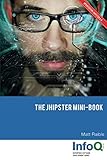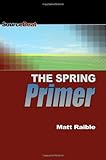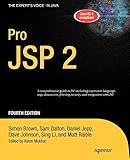Matt Raible
Developer Advocate at Okta
Matt Raible is a Java Champion, Web Developer, and Developer Advocate at Okta. He loves to architect and build APIs and slick-looking UIs using CSS + JavaScript. When he's not advocating Okta and open source, he likes to ski with his family, drive his VWs and enjoy craft beer.Presentations
HTML5 with Play/Scala, CoffeeScript and Jade
11:00 AM MDT
This session shows you how to use some of the hottest technologies today to build a webapp, an API and a mobile application to track fitness workouts. Using HTML5 technologies (specifically geo and local storage), I’ll show you how you can track the time, distance and music you listened to while exercising. Play with Scala is used for the backend and services, while CoffeeScript and Jade are used for the front-end templating and Ajax communication.
This session will explain limitations encountered with HTML5 and discuss when native apps might work better.
Play vs. Grails Smackdown
5:00 PM MDT
In this session, Matt and James will develop two apps that do the same thing. One will be written in Grails and one will be written in Play. We'll deploying them to Heroku and hammer them to see how they both perform under load. Afterward, we'll compare performance, lines of code, etc.
Who will be declared the winner?!
Who will be declared the winner?!
Books
The JHipster Mini-Book
by Matt Raible
The things you need to do to set up a new software project can be daunting. First, you have to select the back-end framework to create your API, choose your database, set up security, and choose your build tool. Then you have to choose the tools to create your front end: select a UI framework, configure a build tool, set up Sass processing, configure your browser to auto-refresh when you make changes, and configure the client and server so they work in unison. If you're building a new application using Spring Boot and Angular, you can save days by using JHipster. JHipster generates a complete and modern web app, unifying: - A high-performance and robust Java stack on the server side with Spring Boot - A sleek, modern, mobile-first front-end with Angular and Bootstrap - A robust microservice architecture with the JHipster Registry, Netflix OSS, the ELK stack, and Docker - A powerful workflow to build your application with Yeoman, Webpack, and Maven/GradleThe Spring Primer
by Matt Raible
The Spring Primer is the most complete book on the Spring Framework. It is for users who are familiar with Java development but have never used Spring. As you read this title, you will learn how Spring reduces the amount of code you have to write and why it receives so much attention and respect from the Java community. This book is very code-intensive and contains many examples for developing applications with Spring. You'll use Test-Driven Development to rapidly develop and test a simple CRUD application. All of the code in this book is available on SourceBeat's web site. In addition, an open-source project called Equinox is available as part of this book to help users get started quickly and easily with Spring.Pro JSP 2, Fourth Edition (Expert's Voice in Java)
by Simon Brown
(Michael Kofler) did the hard work of taking the documentation and sifting through it to bring the useful parts together clearly and concisely. Definitive indeed. Author Craig Maloney, Slashdot Contributor This second edition of Michael Kofler's acclaimed book has updated and expanded to cover MySQL 4.0, the most recent production release of the popular open source database, which boasts more than 4 million users worldwide. Like the first edition, this revision, which has been renamed to reflect the breadth and depth of Kofler's coverage of the topic, provides a thorough introduction to the installation, configuration, implementation, and administration of MySQL. In addition, Kofler demonstrates how you can use MySQL in conjunction with various other technologies to create database-driven websites, and he gives practical advice on database design. Kofler also covers what's coming up next in MySQL 4.1. The Definitive Guide to MySQL, Second Edition is an irreplaceable resource for MySQL novices and experts alike.Pro JSP, Third Edition
by Matt Raible, Sing Li, Dave Johnson, Daniel Jepp, Sam Dalton, and Charles Brown
Simpler, faster, easier dynamic website development based on new additions to an established and proven technologythat's what JavaServer Pages (JSP) 2.0 is all about. Pro JSP, Third Edition is the most comprehensive guide and reference to JSP 2.0 yet. It equips you with the tools, techniques, and understanding you need to develop web applications with JSP and Java servlets.
The features of the JSP 2.0 and Servlet 2.4 specifications make developing web applications easier than ever before. JSP Expression Language (EL) provides a simple language for creating JSP pages and tags. In addition, by also using the JSP Standard Tag Library (JSTL), you'll never have to use a Java scriptlet or write spaghetti code again.
Beyond covering the JSP and Servlet APIs, this book shows you how to choose and implement the best persistence option for your web applications; how to secure your web sites against malicious attack and accidental misuse; how to improve the performance and scalability of your JSP pages; and how to architect and design your applications to be reliable, stable, and maintainable through the use of design patterns and best practices.
Finally, no JSP book would be complete today without looking at the role that open source projects such as Ant, Struts, XDoclet, JUnit, and Cactus can play in making your web development even easier.




